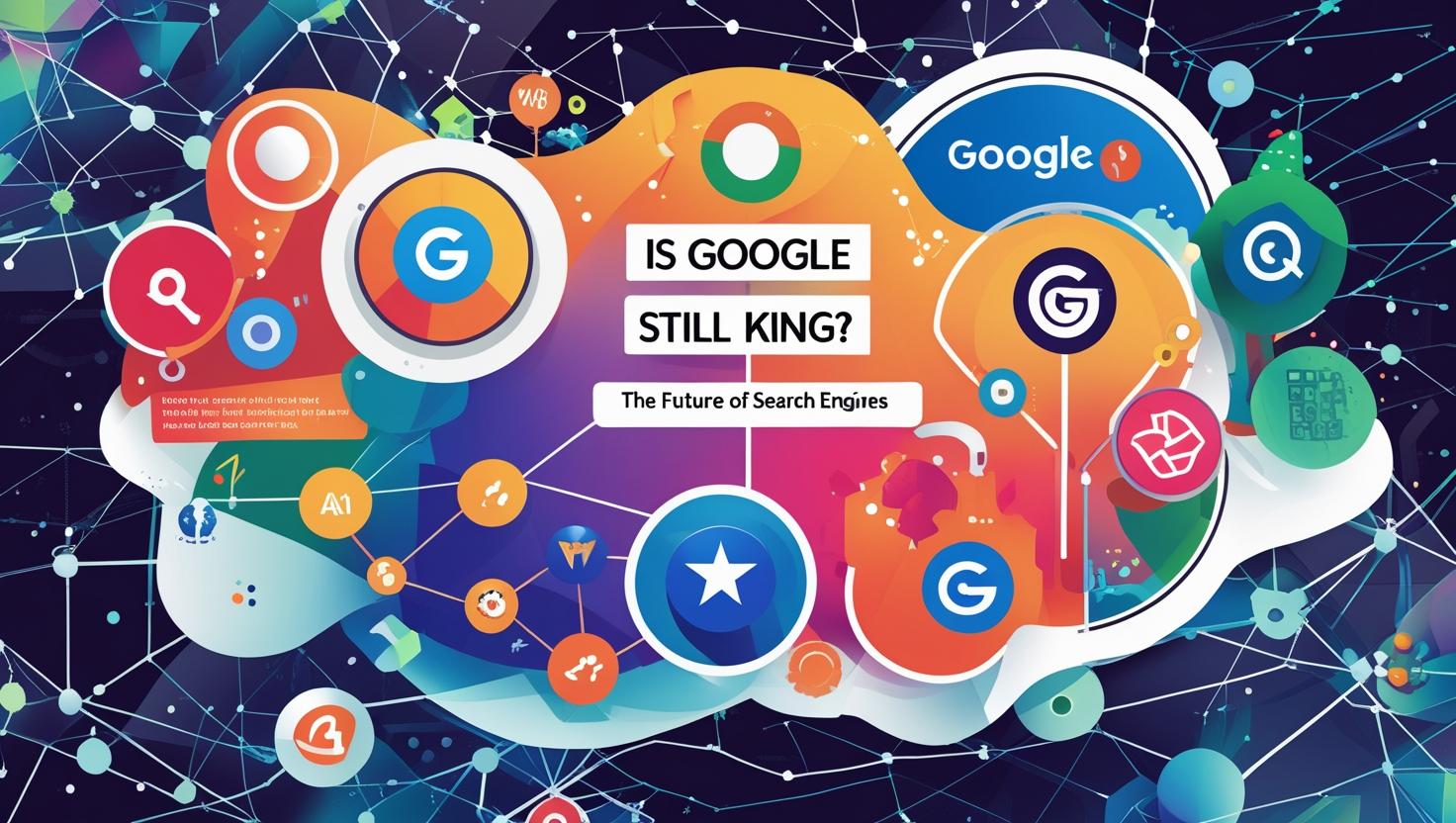
- June 1, 2025
- Tech, AI & Trends
Is Google Still King? The Future of Search Engines
For decades, Google has dominated the internet search landscape. With over 90% of global market share, it's long been considered the unquestioned king of search engines. But in 2025, as technology evolves and user behavior shifts, many are asking: Is Google still on the throne?
Let’s explore where search is headed—and whether Google’s crown is secure.
Google’s Reign: A Brief Overview
Since its launch in 1998, Google has transformed from a basic search engine into a full-scale digital ecosystem. From Gmail to Google Maps, Android to Google Ads, its influence reaches far beyond simple web searches.
Why Google rose to dominance:
-
Powerful and accurate search algorithms
-
Fast indexing of the web
-
Continuous innovation (e.g., featured snippets, voice search)
-
Integration with a wide range of products and services
Google has shaped how we access information. But is the future guaranteed?
Emerging Competitors: Who’s Challenging Google?
Several platforms are rising as alternative search engines—some offering unique experiences, others capitalizing on user privacy or niche markets.
Notable challengers:
-
Bing (Microsoft): Integrated with ChatGPT and AI-powered results
-
DuckDuckGo: Gaining traction for its privacy-first approach
-
Brave Search: Built around transparency and independent indexing
-
You.com: A customizable AI search engine tailored to user intent
-
TikTok and Reddit: Becoming go-to platforms for Gen Z queries
These players are carving out space in areas where Google may lag—AI-native experiences, personalization, and privacy.
The Rise of AI-Powered Search
Artificial Intelligence is rapidly changing how people interact with information. In 2025, AI-driven search engines like Perplexity AI, ChatGPT Search, and Microsoft Copilot are offering conversational, summarized answers instead of long lists of links.
How AI is changing search:
-
Direct answers instead of website listings
-
Context-aware responses based on user history
-
Reduced need for multiple clicks or page visits
This shift could reduce traditional SEO impact and force websites to rethink content strategies.
Is Google Adapting Fast Enough?
Google isn’t sitting still. It has integrated AI into its core products through Search Generative Experience (SGE) and Gemini models. The company is also investing in improving personalized search and integrating more visual results.
However, users are noticing:
-
Too many ads dominating search results
-
Lower trust in Google's neutrality
-
Slower innovation compared to newer platforms
These issues could chip away at its dominance if not addressed aggressively.
The Future of Search: Decentralized, Personalized, Conversational
The future of search is likely to be more decentralized, multimodal, and intent-based. Users want quick, relevant answers—and they’re turning to platforms that deliver just that.
Trends shaping the future:
-
Voice and visual search via smart devices
-
Search engines with built-in AI assistants
-
Niche engines built for specific industries or communities
In this landscape, Google must innovate—or risk losing relevance.
Final Thoughts
Is Google still king in 2025? Yes—for now. But the crown is no longer unchallenged. With AI revolutionizing how people search, and new platforms offering tailored, private, and instant experiences, Google faces real competition.









